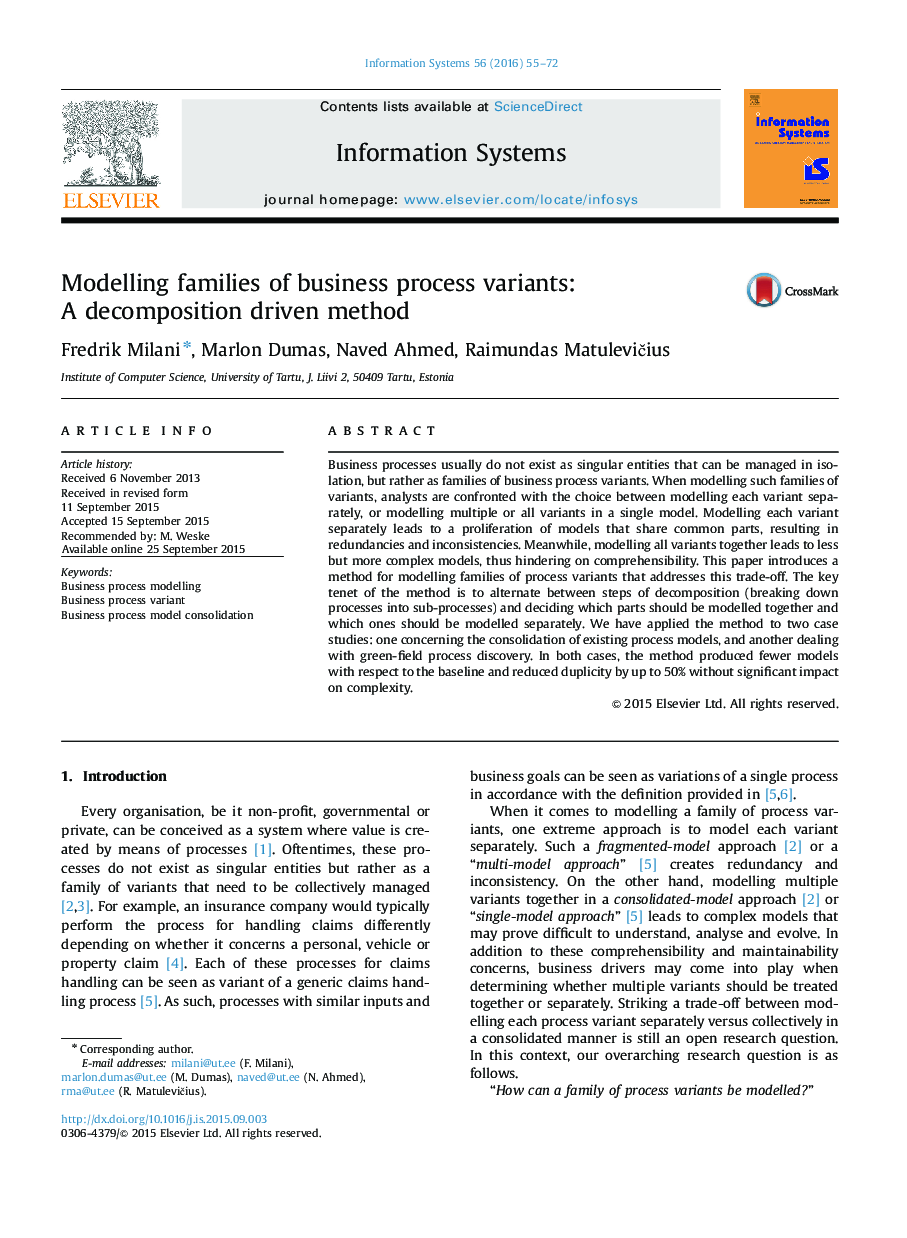| کد مقاله | کد نشریه | سال انتشار | مقاله انگلیسی | نسخه تمام متن |
|---|---|---|---|---|
| 396471 | 670352 | 2016 | 18 صفحه PDF | دانلود رایگان |
• Managing the trade-off of modelling process variants together versus separately.
• Method for alternating decomposition with managing variants together or separately.
• Applied on consolidation and greenfield process discovery case studies.
• Results show reduced duplicity by 50% without significant impact on complexity.
Business processes usually do not exist as singular entities that can be managed in isolation, but rather as families of business process variants. When modelling such families of variants, analysts are confronted with the choice between modelling each variant separately, or modelling multiple or all variants in a single model. Modelling each variant separately leads to a proliferation of models that share common parts, resulting in redundancies and inconsistencies. Meanwhile, modelling all variants together leads to less but more complex models, thus hindering on comprehensibility. This paper introduces a method for modelling families of process variants that addresses this trade-off. The key tenet of the method is to alternate between steps of decomposition (breaking down processes into sub-processes) and deciding which parts should be modelled together and which ones should be modelled separately. We have applied the method to two case studies: one concerning the consolidation of existing process models, and another dealing with green-field process discovery. In both cases, the method produced fewer models with respect to the baseline and reduced duplicity by up to 50% without significant impact on complexity.
Journal: Information Systems - Volume 56, March 2016, Pages 55–72
